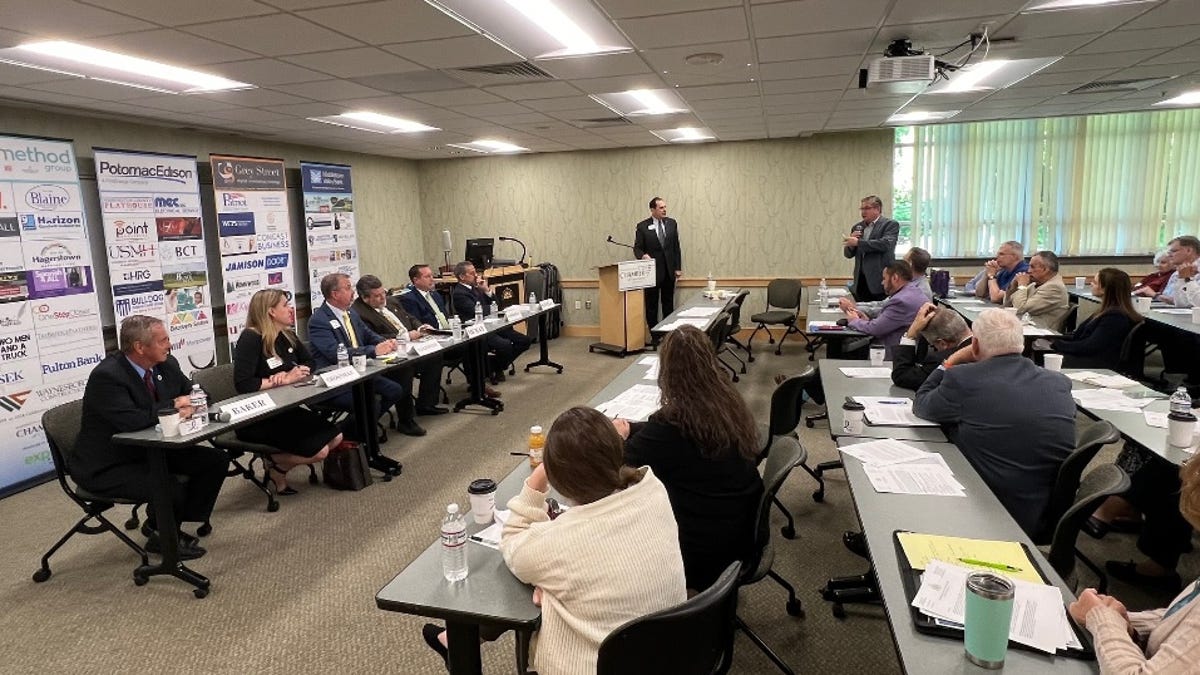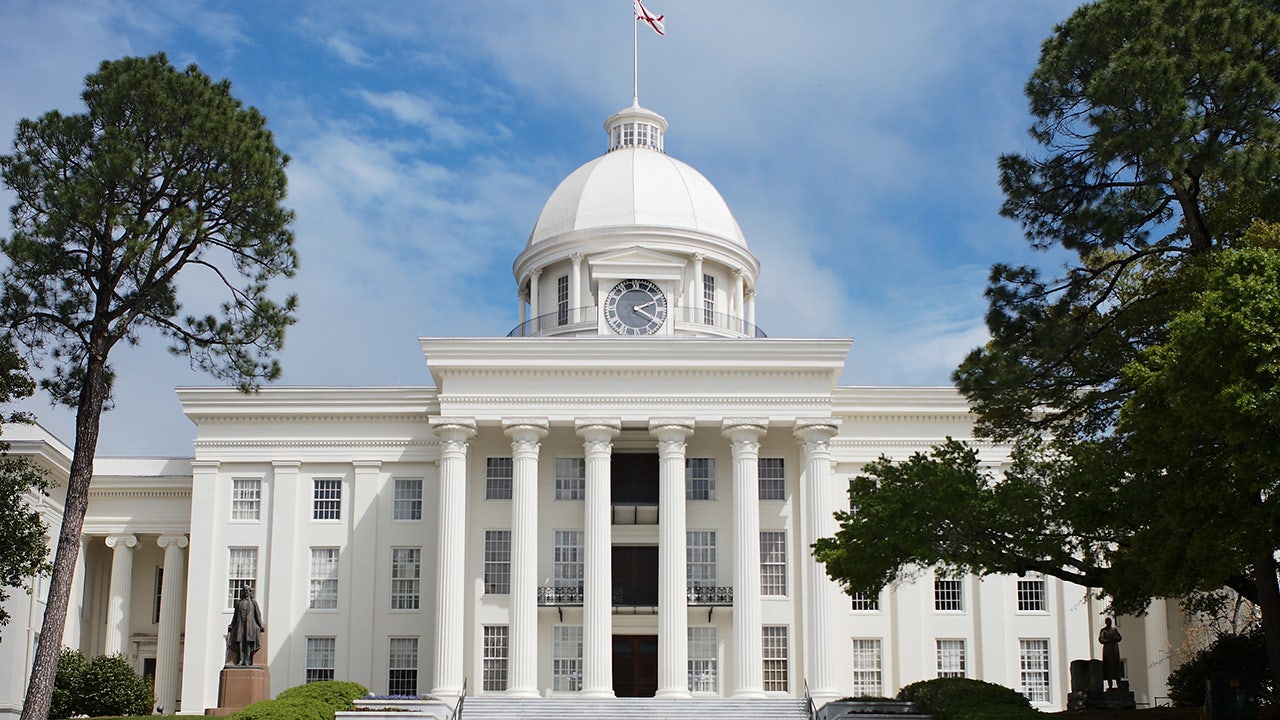Connecticut
CT federal court nominee takes another GOP pasting but moves closer to confirmation

Quinnipiac law professor Sarah Russell’s nomination to the federal court took another beating from Senate Republicans in Washington Thursday over a letter she signed calling for the mass release of criminals from prisons and jails during the COVID pandemic.
Russell was not present in person at what amounted to her second appearance before the committee. Following her acrimonious, in-person, first appearance in November, Republicans succeeded in blocking her nomination from moving to the floor for a vote. President Biden resubmitted her nomination a week ago, leading to Thursday’s hearing.
Texas Senator Ted Cruz led the Republican attack Monday, using an easel and charts to attack the 2020 letter Russell signed with 1,500 others, a letter she said she could not recall at her first appearance and failed to submit to the committee under its records request.
“It is easy to see why she would want to forget this letter,” Cruz said. “The letter demanded that due to COVID, the governor of Connecticut should ‘immediately release to the maximum extent possible people incarcerated pre-trial and post conviction. In other words, let everyone out.”
“The people of Connecticut would be horrified to know that a woman who called on the governor to release violent criminals is now going to be a federal judge with the power to release violent criminals into their community. This is not mainstream. This is extreme.”
Connecticut U.S. Sen. Richard Blumenthal tried to defend Russell.
“There is nothing new here,” Blumenthal said. “This committee has already heard these allegations and more. This nominee is extraordinarily well qualified as a scholar, a litigator, a teacher, over decades. And that is the reason why the people of Connecticut do strongly support her nomination and why President Biden commendably has nominated her.”
“As to this letter, Sarah Russell has disavowed the views in it. She has told this committee that signing it was a mistake. It was overbroad. She didn’t write it. She didn’t edit it. She doesn’t agree with its views. And maybe I’m the only one on this committee, but there are a few letters I’ve signed that I look back and said, ‘Gee maybe not such a good idea.’ She was among 1,500 signatories.”
At the end of the committee meeting, Russell was approved for second time by an 11-10 party line vote, meaning her nomination again moves to the full Senate, which Democrats narrowly control by a 51-49 margin, for a confirmation vote.
Carl Tobias, a law professor who tracks federal judicial nominations at the University of Richmond, called the Republican criticism expected and probably of no consequence. He predicted the Senate will confirm the Russell nomination by a narrow vote in coming weeks.
Russell’s nomination is supported by a number of groups, including The Leadership Conference on Civil and Human Rights, which said Thursday that her “significant experience rooting out disparities in the criminal-legal system and protecting the rights of all people — including her critical work as a public defender — will greatly benefit the District of Connecticut and add incredibly valuable perspectives to the judiciary.”
Russell is a law professor at Quinnipiac University, who has taught at Yale University and worked as a public defender in federal court. She is part of the cohort of federal judges nominated by Biden, who called on the senate at the start of his term to confirm federal judges that diversity the court by race, ethnicity, sexual orientation and professional background.

Connecticut
Legacy Admission Ban Passes In Maryland, Falters In Connecticut

Maryland passes a ban on a legacy admission preferences, while Connecticut weakens a similar … [+]
Legislation that would ban colleges from giving an advantage to the relatives of alumni has met very different fates in two states recently.
Last month Maryland enacted a legacy admission ban that applies to both public and private colleges. But in Connecticut, the House converted an earlier bill with a similar prohibition into one that would require colleges only to report data about their use of legacy admissions.
Maryland now becomes the third state to eliminate the practice of legacy preferences, following Colorado which passed its ban in 2021 and Virginia, which did so earlier this year.
Maryland Governor Wes Moore signed HB 4 into law on April 25. It applies to colleges and universities that receive state funds, regardless of whether they are public or private. In addition to prohibiting any admission preference for relatives of an alum, the law, which goes into effect July 1, also bans institutions from giving a similar preference to applicants who are relatives of a donor to the institution.
In Connecticut, a bill that began as a ban against legacy admission preferences was weakened after private institutions such as Yale University and Fairfield University mounted a campaign defending the practice, arguing that the government should not intrude on how colleges and universities establish and apply their admissions standards.
Bowing to those concerns, the Connecticut Senate passed an amended bill this week that mandates colleges either to indicate they don’t consider legacy status in admissions or report various admission/enrollment data, including the percentage of legacy students admitted along with data comparing the academic credentials of legacy admits to those of other students. The bill now moves to the Connecticut House of Representatives for its consideration.
The fairness of legacy preferences has been challenged for years, resulting in several prominent colleges electing to discontinue them. However, the heat has been turned up against the practice ever since last year’s Supreme Court decision in Students for Fair Admissions v. Harvard University and Students for Fair Admissions v. University of North Carolina finding race-conscious admissions to be unconstitutional.
That ruling brought renewed scrutiny to the racial implications of legacy advantages extended to applicants by highly selective institutions. For example, the percentage of the freshmen class admitted at several selective colleges via the legacy route exceeds the percentage of entering freshmen who are Black, according to a recent report, prepared by Education Reform Now. At many of these colleges, three-quarters or more of the legacy applicants receiving acceptances are white.
Results like those prompt an obvious question: If colleges are required to practice race-neutral admissions policies, why should they be able to continue admission practices – like legacy preferences – that appear to discriminate against nonwhite students?
Legacy abolitionists will see these latest two legislative developments as one step forward and one step back.
Maryland’s passage of its new law might give some momentum to other states like Minnesota and Massachusetts that are still considering bans. But the outcome in Connecticut is clearly a setback. It represents a compromise that prevents any real change to the status quo, and it may become a strategy adopted in the future by legacy-preferring colleges to weaken or derail statutory bans in other states.
Connecticut
CT House approves climate change bill after failing on mandate on electric cars

Unable to pass mandates for electric cars, the state House of Representatives approved substitute steps Wednesday night in a high-priority bill on climate change that provides incentives for alternative energy like solar power and electric heat pumps.
After more than 4 1/2 hours of debate, the House voted 94-56 shortly before 9 p.m. for the measure.
Democrats hailed the multi-faceted bill for taking steps like expanding solar canopies in parking lots and creating a task force to study electric transmission that would include off-shore wind. The 23-page bill offers incentives like tax credits and business fee waivers, among others.
“I think in terms of acknowledging that we are in a climate crisis, which is going to be one of the controversial parts of this bill, is foundational to what we’re doing,” said Rep. Christine Palm, the vice chairwoman of the environment committee who is not seeking re-election. “Because at this point, to deny that’s true is just preposterous.”
But the political debate continues across the country among national politicians over the extent and solutions for climate change, even though others say that the science is clear.
“I think the most important takeaway is that this bill manages to satisfy environmentalists,” Palm told reporters. “And I want to put particular emphasis on young people, 70% of whom in Connecticut are very worried about the future, and the business community, 84% of whom acknowledged that going green or sustainable practice helps attract and retain talent. So these two groups are often thought of as anathema to one another, but this bill just proves that and I’m excited to run it.”
The debate in the state House of Representatives started at 4:06 p.m. and continued into Wednesday night on an issue that some legislators had predicted could last six to eight hours.
Known as House Bill 5004, the measure is a high priority of the House Democratic caucus, which holds the majority in the chamber.
But Rep. Patrick Callahan of New Fairfield, the ranking House Republican on the environment committee, raised questions.
“There’s a lot of incentives for people to switch to green. Who’s going to pay for them?” Callahan asked. “You’re going to give a lot of subsidies for people for expensive [electric] heat pumps, and then the ratepayers are going to pay for those incentives. … They’re an incredible draw on the grid. One of the biggest expenses is you’re going to have an upgrade to the grid. … A lot of this is putting the cart before the horse.”
Callahan added, “Eleven years ago, the big push was for natural gas, and that didn’t succeed” after falling short of the stated goals.
House Republican leader Vincent Candelora of North Branford said Republicans are concerned about the costs for the average consumer in Connecticut in an issue with international implications.
“The state of Connecticut has very little market share in any of this stuff,” Candelora said. “I’m not sure that we will have any impact, and we should be looking globally. When we see places in China and India, building as many coal plants as the [United States] is closing, we are merely chasing our tail and moving the chairs around on the Titanic. I think this issue is much bigger than the state of Connecticut.”
Mark Mirko/The Hartford Courant House Republican leader Vincent Candelora of North Branford raised questions about the climate change bill. Here, he strides past lobbyists on the second floor of the Capitol in 2022.
Electric cars
House Speaker Matt Ritter, a Hartford Democrat, acknowledged that it was difficult to pass a controversial bill that would have mandated that Connecticut adopt the California emissions standards and mandate that all new car sales in Connecticut starting in 2035 would be all-electric or plug-in hybrid. Republicans raised multiple questions earlier this year, saying that Democrats were moving too quickly without enough public input and no legislative hearings at the time.
“We faced a real tough time in our caucus trying to pass a bill that was a mandate, right?” Ritter said to reporters Wednesday at the state Capitol in Hartford. “We saw that that was a tough debate internally, right? And we’ve got two choices, right? You can go down the same path and hope it gets a different result. But I think it shows there’s gotta be some flexibility and adjustments. I think this bill is the most important environmental bill or one of the two most environmental bills in the session.”
On the electric cars, Ritter added, “I’m disappointed we couldn’t get that done. I’m disappointed the President [Joe Biden] felt we couldn’t get it done in the same timeline. But it shows the country has work to do. And so instead of us trying to force that bill through, which would’ve been ugly, let’s make the investments necessary so that when we bring that bill back, people say, “Yeah, I see charging stations in my neighborhood now. I see how it’s gonna work. I see rebates, real offers or tax incentives for me to buy these vehicles.’ People don’t see it right now.”
Debate
During Wednesday’s lengthy debate, Palm noted that the bill fosters training in green jobs, helps municipalities, encourages water and air healthy, and supports energy-saving grid enhancements. She was questioned in detail by Callahan, who said the bill would cost about $750,000.
“How did you arrive at the term climate crisis and what is the definition of climate crisis?” Callahan asked. “The definition I did not see in the bill. … What percentage of the climate crisis is attributable to man?”
Palm responded that there is consensus in the scientific community about the increase in greenhouse gases.
“Net-zero does not mean zero emissions,” Palm said. “It is offset.”
Installing a projected 300,000 electric heat pumps in the future, Callahan said, would use the same amount of electricity as powering 40 small towns.
“It would put us at risk for rolling blackouts in Connecticut,” Callahan said on the House floor. “We’re pulling the rug out from all those people years ago that we tried to convince to go to natural gas. … It seems we’re chasing another fad that is a heavy draw on the grid. I just don’t see the overall win there.”
Callahan asked about the need for nuclear power, but Democrats said that nuclear energy was not addressed in the bill.
“This bill was very carefully written to avoid ratepayer impact,” Palm said. “There is nothing in this bill that says that people cannot have gas heat, cannot have fossil fuels. We are all experiencing double digit rates at the gas pump last week, for example. … This bill does not mandate that anybody stop using gas or oil.”
Lori Brown, a longtime lobbyist as executive director of the Connecticut League of Conservation Voters, said, “This legislation has been a long time in the making with the dedicated leadership of Representative Christine Palm and will help put our state back on the path toward our climate goals.”
Christopher Keating can be reached at ckeating@courant.com
Connecticut
Prominent TV News Anchor Sets Return Date Amid Medical Leave: CT News

Patch PM CT brings you the breaking and trending news stories from all across Connecticut each weeknight. Here are those stories:
The news anchor has been off the air for a while but shared a status update and a return date.>>>Read More.
“This decision is based solely on the fact that we must dedicate the majority of time to our daughter and family,” the owners shared.>>>Read More.
The seventh-grader reportedly had it in a backpack.>>>Read More.
The man was arrested after a witness reported seeing a person fire more than one shot before running into an SUV, according to police.>>>Read More.
Two teens were charged after police responded to 911 calls and rushed to a school. The teens had water guns as part of a popular game.>>>Read More.
Twenty-Five people were arrested at a campus rally in Storrs.>>>Read More.
Other top stories:
The Patch community platform serves communities all across Connecticut in Fairfield, New Haven, Middlesex, New London, Hartford, Tolland, and Litchfield counties. Thank you for reading.
-

 News1 week ago
News1 week agoLarry Webb’s deathbed confession solves 2000 cold case murder of Susan and Natasha Carter, 10, whose remains were found hours after he died
-

 Education1 week ago
Education1 week agoVideo: Dozens of Yale Students Arrested as Campus Protests Spread
-

 World1 week ago
World1 week agoHaiti Prime Minister Ariel Henry resigns, transitional council takes power
-

 News1 week ago
News1 week agoFirst cargo ship passes through new channel since Baltimore bridge collapse
-

 World1 week ago
World1 week agoUS secretly sent long-range ATACMS weapons to Ukraine
-

 World1 week ago
World1 week agoSpanish PM Pedro Sanchez suspends public duties to 'reflect'
-

 News1 week ago
News1 week agoAmerican Airlines passenger alleges discrimination over use of first-class restroom
-

 World1 week ago
World1 week agoAsia bears biggest climate-change brunt amid extreme weather: WMO



















